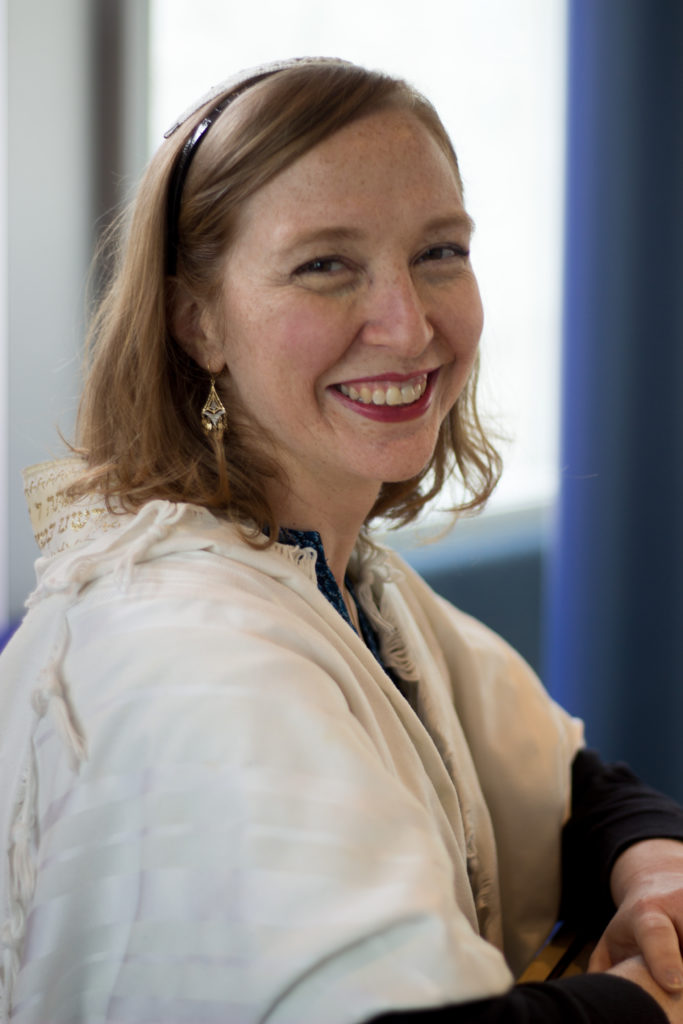This week’s parashah brings us into a new phase of the Jewish people. We completed the book of Genesis, the stories of creation, the line of Abraham and Sarah through Joseph, and we pick up the beginning of the book of Exodus with Joseph’s death. In the span of just a few paragraphs, Joseph dies, a new king arises in Egypt and enslaves the Israelites out of fear that they would become enemies, the Pharoah decrees that all male Israelite babies be killed, and Moses is born and cast into the Nile by his mother.
Pharoah’s decree that all the male Israelite babies be killed elicits my absolute favorite midrash. It appears in several different collections of midrash with some variations, but the basic story remains. “Israel was redeemed on account of the righteous women of that generation,” the midrash tells us. When they went to fetch water, God would put small fish in too, which the women would then bring to their husbands working in the field. They heated a pot with the water and a pot with the fish, and “they used to feed [their husbands], wash them, anoint them, and give them to drink, and cohabited with them between the mounds into the field” (Shemot Rabba 1:12). Midrash Tanhuma elaborates that the wives would show their husbands mirrors, saying “I’m more beautiful than you,” and the husbands would look and say “I’m more beautiful than you,” and they would show each other their beauty, even in enslavement.
Later, these brave wives would give birth to children in the fields away from Pharoah’s inspectors. An angel would be their midwife, and God Godself would suckle them from field stones with honey and oil. In this way, the midrash makes sense of why the Torah tells us that “the more they were oppressed, the more they increased” (Exodus 1:12). It was because even though Pharoah had made life for them almost impossible, attempting to murder the next generation, the wives wouldn’t give up; they figured out a way to conceive and build families even in crisis.
At a time of so many crises in the world, including, of course, the Israel-Hamas war and its impact on Jewish communities in North America, it’s hard to figure out what to do on a daily basis. I have very little personal impact on public policy here or abroad. The antisemitism I see in my city and across North America is completely demoralizing.
This year, this midrash hits me in a different way. I take inspiration from it. God told Abraham that God would multiply his children like the stars, and Pharoah decreed that they should be diminished one by one. The midrash quotes God’s response to the decree: “Well, we will see whose word will prevail, yours or Mine.”
What should we do on a daily basis? Like those righteous women who brought about redemption, we must find a way for life to win over death. Find a way to continue to love – to see the beauty in both yourself and your loved ones, even if others are trying their best to make you feel ugly and unlovable. It is worth creating new Jewish life, even and maybe especially in a time of crisis. New writing and new art. New gathering and new music. New students and new teachers. New ideas and new rituals. New relationships and new families. Each new day that comes.

Rabbi Julia Appel is Clal’s Senior Director of Innovation, helping Jewish professionals and lay leaders revitalize their communities by serving their people better. She is passionate about creating Jewish community that meets the challenges of the 21st century – in which Jewish identity is a choice, not an obligation. Her writing has been featured in such publications as The Forward, The Globe and Mail, and The Canadian Jewish News, among others.

